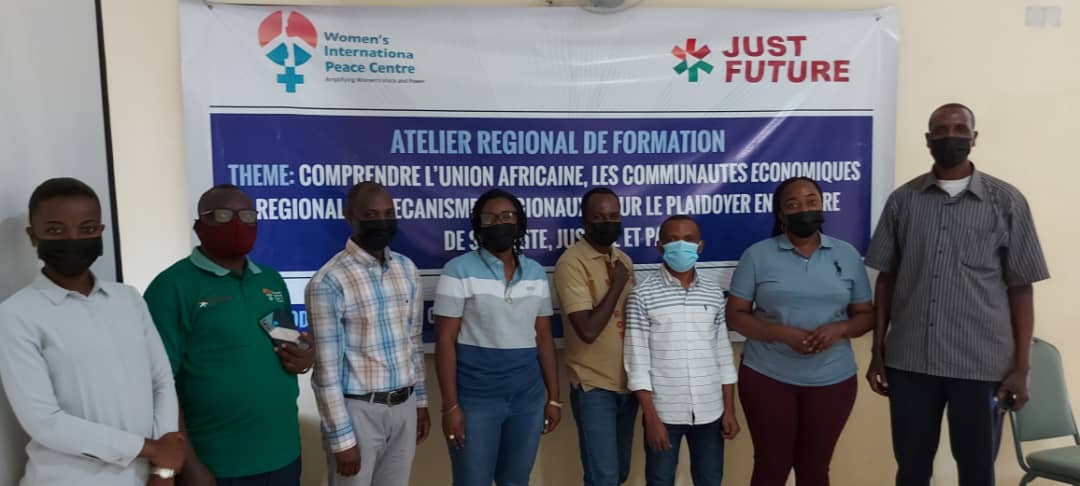As a member of the Just Future alliance, The Peace Centre hosted a training workshop focused on understanding the African Union and Regional Economic Communities and Regional Mechanisms from 31 May to 4 June 2021 for the Just Future Partners. The Training was planned as an initial activity to contribute to strengthening the local and national CSOs in Burundi, DRC, and South Sudan to better influence security, justice and governance policies and practices in their countries and in the region.
30 representatives of CSO partners from Burundi (Bujumbura), DRC (Kinshasa, Bukavu and Goma), South Sudan (Juba) and Peace Centre staff in each of the countries with minimal exposure to or experience with regional advocacy participated in the training. The training was planned as an initial activity to contribute to strengthening the capacity /meeting the learning needs of local/national CSOs in Burundi, DRC and South Sudan to better influence security, justice and governance policies and practices: Lobby and advocate at regional level in support of the national processes by advocating for more people-centred practices: holding regional partners of state duty-bearers to account, and ensuring accountability towards the most excluded constituencies.
Each day of the training covered particular themes such as understanding the global governance architecture and the space of multilateralism, the AU’s key policy priorities, including the continental blueprint, Agenda 2063, the Regional Economic Communities/ Regional Mechanisms (RECs/ RMs): their history, background, various structures and main legal and policy frameworks. The session on gender and inclusivity in the AU and RECs identified opportunities for strengthening women and youth participation in AU and RECs/ RMs structures and processes, and finally, the impact of the COVID-19 pandemic on CSOs work, particularly their lobbying and advocacy work.
The training also involved country team discussions to deepen sharing, learning, connectedness and work towards developing an advocacy plan and other practical training tools. While the training was conducted online, participants gathered in physical locations in each city (Juba, Bujumbura, Bukavu and Kinshasa) to facilitate exchanges with colleagues from partner CSOs.
By the end of the 5days training, participants were exposed to the entry points and opportunities for policy engagement, lobbying and advocacy, especially structures that they could collaborate with for an effective advocacy strategy including working more closely with the AU Special Envoy on Women, Peace and Security, the AU Youth Envoy, the AU Women, Gender and Development Directorate as well as the AU Youth Division. They also developed draft Joint Advocacy Strategies to address cross-cutting issues in Burundi, DRC and South Sudan.
Additionally, the training workshop provided a platform for peer-to-peer exchange and enabled deeper reflection issues facing CSOs in conflict and post-conflict countries. This creation of platforms and spaces for CSOS to meet, exchange, reflect and strategize, and investment in fostering intergenerational dialogue is important. The Just Future Programme has an opportunity to continue bringing CSOs from select countries to share experiences and realities and discuss agendas and strategies.



